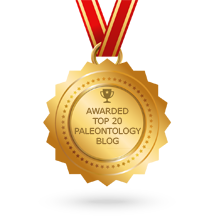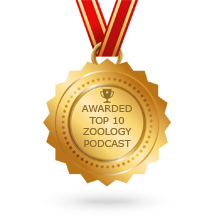PalAss 2016
The 60th Annual Meeting of the Palaeontological Association was held at the University Claude Bernard Lyon 1.
Isotopic aspects of dinosaur reproduction
Romain Amiot, Christophe Lécuyer, Xiaolin Wang, Xing Xu, Jinyou Mo, Zhonghe Zhou, François Fourel, Shuo Wang and Jean-Michel Mazin
The foraging ecology of pterosaurs – implications from stable isotope analysis
Thomas Tütken and David W.E. Hone
Carnivoran resource and habitat use in the context of a Late Miocene faunal turnover episode
Laura Domingo, M. Soledad Domingo, Paul L. Koch, Jorge Morales and M. Teresa Alberdi
How good are your palaeodiversity measurements?
Abel Barral, Bernard Gomez, Juan M. Zorrilla, José M. Serrano, Johan Yans, Véronique Daviero-Gomez and Christophe Lécuyer
A fossilized birth-death model for the reliable estimation of speciation and extinction rates
Rachel C. M. Warnock, Tracy A. Heath and Tanja Stadler
Mass extinctions: towards an understanding of how, why and when ecosystems collapse.
David P. G. Bond
The importance of fossils in dating the Tree of Life: from exceptional preservation to complete absence
Joanna M. Wolfe
The Weeks Formation fauna (Utah, USA) and the evolution of marine animal communities during the late Cambrian
Rudy Lerosey-Aubril, Robert R. Gaines, Thomas A. Hegna, Bertrand Lefebvre, Javier Ortega-Hernández, Peter Van Roy, Carlo Kier and Enrico Bonino
Preservation and phylogeny of Cambrian ecdysozoans tested by experimental decay of Priapulus
Robert Sansom
Cambrian bivalved arthropods and the origin of mandibulates
Cedric Aria and Jean-Bernard Caron
Can phosphatic microfossils constrain Cambrian climates?
Thomas W. Hearing, Thomas H. P. Harvey, Mark Williams, Sarah E. Gabbott, Philip R. Wilby and Melanie J. Leng
Mineralogical insights into the tissues of Burgess Shale animals
Ross P. Anderson, Nicholas J. Tosca, Stuart L. Kearns and Derek E. G. Briggs
Comparison of the postembryonic development in the family Paradoxididae (Trilobita)
Lukáš Laibl, Jorge Esteve and Oldřich Fatka
Modern brains and their Cambrian antecedents: evolutionary stability, genealogical correspondence and evolved loss.
Nicholas J. Strausfeld, Xiaoya Ma and Gregory D. Edgecombe
Palaeoecology of an Upper Ordovician submarine cave-dwelling fauna in northern Kentucky, USA
Caroline J. Buttler and Mark A. Wilson
Freshly-moulted trilobites from the Fezouata Lagerstätte of Morocco
Harriet B. Drage, Thijs R. A. Vandenbroucke, Peter Van Roy and Allison C. Daley
Burgess Shale-type fossils in the Middle Ordovician of the Barrandian area (Czech Republic)
Oldřich Fatka
The diversification of early Asterozoa: resolving a palaeontological quandary
Aaron W. Hunter
Ecological fitting within sheet-forming skeletal metazoans and the Ordovician rise of reef ecosystems
Björn Kröger, André Desrochers and Andrej Ernst
Annual Address
Molecular thermometers: ancestral sequence reconstruction uncovers the history of adaptation to environmental temperature along the tree of life.
Manolo Gouy
Mass extinctions as drivers of increased faunal cosmopolitanism on the supercontinent Pangaea
David J. Button, Richard J. Butler, Graeme T. Lloyd and Martin D. Ezcurra
The enigmatic archosaurs Mandasuchus and Teleocrater from the Middle Triassic of Tanzania and their implications for archosaur evolution
Paul M. Barrett, Sterling J. Nesbitt, Alan Charig and Richard J. Butler
Ammonoids from the Griesbachian (Early Triassic) of northeastern Greenland: taxonomy and biostratigraphy
David Ware and Hugo Bucher
Looking snappy: quantifying convergence in cranial morphology between phytosaurs and crocodylomorphs
Andrew Jones, Pedro L. Godoy and Richard J. Butler
Testing niche versus neutral models of Ediacaran community assembly
Emily G. Mitchell, Charlotte G. Kenchington, Alexander G. Liu, Simon J. Harris, Philip R. Wilby and Nicholas J. Butterfield
The Chronicles of Charnia: developmental biology and phylogenetic inference from an Ediacaran rangeomorph
Frankie Dunn, Philip R. Wilby, Philip C.J. Donoghue and Alexander G. Liu
Critically accessing the depositional setting of the Ediacaran Mistaken Point biota
Jack J. Matthews
The palaeobiology of Ediacaran rangeomorphs: reproduction, environmental sensitivity and ecological succession
Charlotte G. Kenchington and Philip R. Wilby
The pattern of ecological radiation of mammals across the K/Pg boundary
Gemma L. Benevento, Matt Friedman and Roger B. J. Benson
The death of dinosaurs and rise of mammals in the San Juan Basin of New Mexico, USA
Stephen L. Brusatte, Thomas E. Williamson, Matthew T. Heizler, Daniel J. Peppe, Ross Secord, Adam Davis, C. Will Fenley, Andrew Flynn, Caitlin Leslie and Sarah L. Shelley
A new fossil Bramoides from the Eocene London Clay, re-aligned with the enigmatic modern genus Gasterochisma (Teleostei: Scombridae)
Hermione T. Beckett, Zerina Johanson, Mark Graham and Matt Friedman
Fossilized nuclei from the Ediacaran Weng’an Biota (Doushantuo Formation, South China)
John A. Cunningham, Zongjun Yin, Kelly Vargas, Stefan Bengtson and Philip C. J. Donoghue
Environmental partitioning and differential growth in species of the thyreophoran dinosaur Stegosaurus in the Upper Jurassic Morrison Formation, USA
Susannah C. R. Maidment, D. Cary Woodruff and John R. Horner
Phylogenetic diversity as a palaeobiodiversity metric: new evidence for a Cretaceous decline in Mesozoic dinosaurs
Graeme T. Lloyd, David W. Bapst, Matt Friedman and Katie E. Davis

















